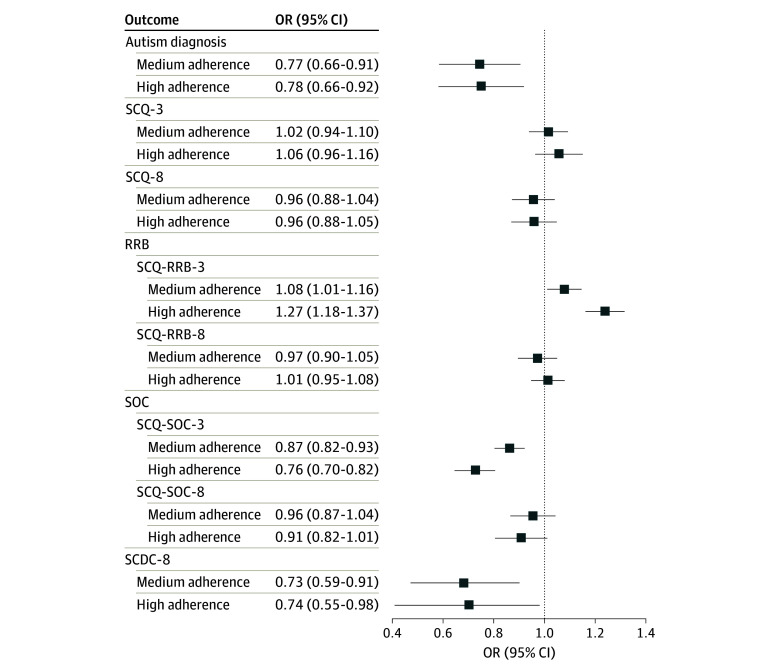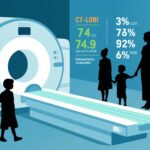Introduction
Recent research conducted by a team of scientists from the University of Glasgow in the UK and the Norwegian Institute of Public Health suggests a significant link between maternal diet during pregnancy and the risk of autism spectrum disorder (ASD) in children. Their findings show that women who adhere to a healthy prenatal diet are 22% less likely to have children diagnosed with autism compared to those with less healthy eating patterns. The study was published in the latest issue of JAMA Network Open.
Background and Previous Research
Autism spectrum disorder is a complex neurodevelopmental condition characterized by challenges in social interaction, communication, and repetitive behaviors. Although the exact causes remain unclear, previous studies have indicated that genetic, environmental, and prenatal factors—including maternal diet—may influence autism risk. However, comprehensive evidence linking specific dietary patterns during pregnancy to autism outcomes has been limited.
Study Design and Methods
The research team analyzed data from two large population-based cohorts covering different periods: one from 2002 to 2008 and another from 1990 to 1992. Altogether, data from over 95,000 mother-child pairs were examined. The study assessed maternal dietary patterns during pregnancy using detailed food frequency questionnaires and categorized diets as “healthy” or “unhealthy” based on consumption habits.
Defining a Healthy Prenatal Diet
The healthy diet pattern identified in the study included regular consumption of vegetables, fruits, nuts, fish, and whole grains. Conversely, diets high in processed meats, high-fat foods, soft drinks, and refined carbohydrates were considered unhealthy. This dietary classification aligns with general nutritional guidelines promoting balanced intake of nutrient-rich foods and limiting processed and sugary items.
Key Findings
The results revealed that women who consistently followed a healthy prenatal diet had a 22% lower likelihood of giving birth to children diagnosed with autism compared to those with unhealthy diets. Moreover, children born to mothers who frequently consumed such diets were 24% less likely to exhibit social or communication difficulties, common features associated with ASD.
Interestingly, the association between maternal diet and autism risk appeared stronger in mother-daughter pairs than mother-son pairs, suggesting potential sex-specific effects that warrant further investigation.
Associations Between Adherence to a Healthy Prenatal Dietary Pattern and Autism-Related Outcomes.
Possible Mechanisms
While the study did not conclusively determine why a healthy prenatal diet reduces autism risk, the researchers hypothesize that dietary components may influence fetal brain development through epigenetic modifications or immune system regulation. Nutrients found in healthy foods can affect DNA methylation patterns or modulate inflammatory responses, potentially impacting neurodevelopmental pathways.
Implications for Expectant Mothers
This research emphasizes the importance of maternal nutrition during pregnancy for child neurodevelopmental health. Expectant mothers are encouraged to maintain a balanced diet rich in plant-based foods, healthy fats, and whole grains while minimizing processed and high-sugar items. Such dietary habits may contribute not only to reducing autism risk but also to promoting overall fetal growth and well-being.
Limitations and Future Research
The observational nature of the study means causality cannot be firmly established. Other factors such as genetics, lifestyle, and environmental exposures also play critical roles in autism risk. Future research is needed to explore the biological mechanisms underlying these associations and to determine whether targeted nutritional interventions during pregnancy can effectively prevent ASD.
Conclusion
The study provides compelling evidence that healthy prenatal dietary patterns are associated with a reduced risk of autism and related social or communication challenges in offspring. These findings support public health efforts to improve maternal nutrition as a potential strategy to mitigate neurodevelopmental disorders in children.
Reference
Friel C, Leyland AH, Anderson JJ, Havdahl A, Brantsæter AL, Dundas R. Healthy Prenatal Dietary Pattern and Offspring Autism. JAMA Netw Open. 2024 Jul 1;7(7):e2422815. doi: 10.1001/jamanetworkopen.2024.22815 . PMID: 39023891 ; PMCID: PMC11258593 .




